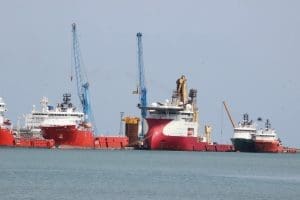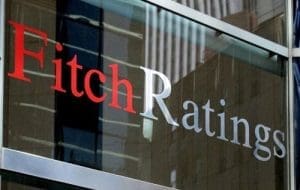Ghana, Japan open new trade, infrastructure, investment ties
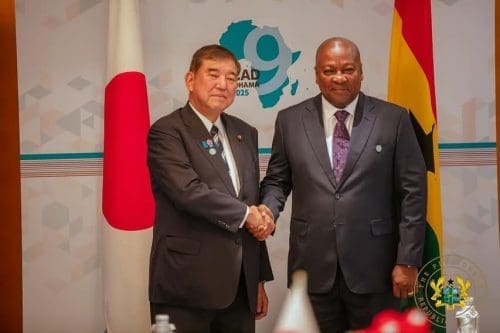
President John Dramani Mahama and Japanese Prime Minister Shigeru Ishiba have opened a new chapter in Ghana–Japan relations with the signing of fresh commitments to expand cooperation in cocoa value addition, strategic infrastructure, and cultural exchange.
The two leaders held bilateral talks on the sidelines of the Ninth Tokyo International Conference on African Development (TICAD-9), which opened in Yokohama on August 20, 2025.
The discussions, anchored in decades of friendship between the two nations, underscored shared priorities that promise benefits for both Ghana and Japan—ranging from secure cocoa supply for Japanese industry to strategic transport links and job creation for Ghanaians.
Cocoa partnership at the center
Cocoa topped the agenda, with President Mahama making a compelling case for Japanese investment in Ghana’s cocoa sector. Ghana currently supplies about 70% of Japan’s cocoa imports, a trade link that has endured for decades.
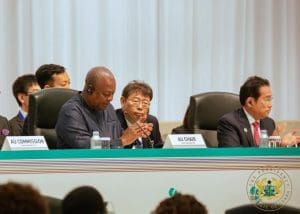
But Mahama stressed that Ghana seeks not just to remain a supplier of raw beans, but to deepen processing and value addition at home.
He specifically invited Japanese firms to enter into a public–private partnership (PPP) with the Cocoa
Processing Company (CPC) to revamp its operations and boost Ghana’s processing capacity.
“We look forward to concrete next steps that deliver jobs, value addition, and connectivity for Ghanaians,” Mahama told Prime Minister Ishiba.
For Japan, the arrangement promises a stable supply of high-quality cocoa products to meet the demands of its confectionery and beverage industries.
For Ghana, it offers industrial transformation, expanded exports of processed goods, and more employment along the cocoa value chain.
Infrastructure cooperation: The Volivo Bridge
The two leaders also revisited Ghana’s request for additional support for the Volivo Bridge project.
The bridge, spanning the Volta River, is a strategic link along Ghana’s Eastern Corridor, connecting Accra and Tema to the northern regions and on to Burkina Faso and Niger.
Japan had earlier committed JPY 11.239 billion in 2016 toward the project, but President Mahama stressed that a funding gap of 64% remains.
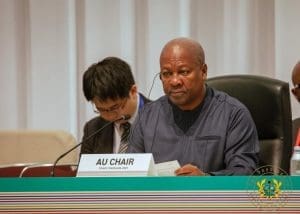
He appealed for grants and concessional support to fast-track the project’s completion.
The bridge, he explained, will be a lifeline for farmers and traders, easing the transport of yams, maize, and other agricultural produce from the north to the south.
Beyond food security, it will improve trade flows across West Africa, strengthening Ghana’s role as a regional hub.
Japan reaffirmed its readiness to work with Ghana to close funding gaps and ensure timely delivery.
For Japan, the project is an opportunity to deploy its renowned engineering and infrastructure expertise in Africa, reinforcing its role as a trusted development partner.
People-to-people ties: Celebrating shared history
The bilateral meeting also spotlighted cultural and people-to-people exchanges, particularly as Ghana and Japan approach two symbolic anniversaries.
The centenary of Dr. Hideyo Noguchi’s arrival in Ghana—where he conducted pioneering research on yellow fever—will be marked in 2027, alongside the 50th anniversary of the Japan Overseas Cooperation Volunteers (JOCV).
Both milestones underscore the depth of human connection between the two countries.
President Mahama and Prime Minister Ishiba agreed to use these anniversaries to further strengthen educational, cultural, and volunteer programmes that build bridges between Ghanaians and Japanese citizens.
Multilateral Cooperation and Global Governance
Beyond bilateral matters, the two leaders also discussed cooperation in multilateral fora.
Ghana pledged support for Japan’s candidate, Masahiko Metoki, for Director General of the Universal Postal Union (UPU) International Bureau.
Japan, for its part, reiterated its positions on reform of the United Nations Security Council—an issue of shared interest with African nations seeking greater representation in global governance.
These alignments, observers noted, reflect a convergence of values between Ghana and Japan on strengthening multilateralism and reforming international institutions to better serve developing countries.
Mahama’s call at TICAD-9
President Mahama also played a leading role in the TICAD-9 plenary session on “Economy: Co-create Innovative Solutions with Africa,” which he co-chaired alongside former Japanese Prime Minister Kishida Fumio.
Sharing the platform with Presidents William Ruto of Kenya, Faure Gnassingbé of Togo, Cyril Ramaphosa of South Africa, Azali Assoumani of Comoros, and UN Under-Secretary-General Cristina Duarte, Mahama issued a frank call for African reform.
“Africa is open for business,” he said. “But let’s not kid ourselves—trade and investments will not come to Africa because we wish for it. We must silence the guns, reform economies for stability, strengthen governance, and make public service accountable and corruption-free.”’
He cautioned that global dynamics are shifting, with even the world’s largest economies adopting more transactional approaches.
Africa, he argued, must therefore position itself as a credible, stable destination for investment to attract long-term partnerships like those on offer from Japan.
Ghana investment forum: Showcasing opportunities
On the sidelines of TICAD, Ghana hosted a high-level Presidential Investment Forum in Yokohama, attracting more than 100 Japanese companies.
The Ghana Investment Promotion Centre (GIPC) in collaboration with the Ministry of Foreign Affairs, the Ghana Export Promotion Authority (GEPA), and the Japan External Trade Organisation (JETRO) organised GIPC presidential investment forum themed: “Ghana is Open for Business—Unleashing Investment Opportunities for Shared Prosperity.”
President Mahama used the platform to present Ghana as a stable, democratic, and business-friendly gateway to West Africa. He announced measures to facilitate Japanese investment, including fast-track approvals, sovereign guarantees, blended financing frameworks, and ready industrial sites.
“My three requests are simple,” Mahama told investors. “Pilot with us, partner to scale, and invest in people.”
He also called for commitments to local content and technology transfer to ensure that Ghanaians directly benefit from incoming investments.
Strategic incentives for investors
GIPC CEO Simon Madjie followed with a presentation outlining Ghana’s strategic initiatives to build an inclusive, competitive economy.
Central to his message were the “Big Push Agenda” and the “24-Hour Economy and Accelerated Export Development Programme (24H+).”
The Big Push Agenda, a US$10 billion infrastructure plan, aims to close Ghana’s infrastructure deficit with investments in transport, logistics, agriculture, energy, and water systems.
The 24H+ programme, meanwhile, seeks to extend business operations beyond traditional working hours, boosting productivity, market access, and job creation.
Madjie highlighted financial and non-financial incentives available to investors, including tax rebates, duty waivers, corporate tax holidays for agro-processing and renewable energy, location-based tax reductions outside Accra and Tema, and customs exemptions for machinery and equipment.
He pointed to ready projects such as the Volta Economic Corridor, Legon Pharmaceutical Innovation Park, and Kumasi Machinery & Technology Park as attractive destinations for Japanese capital.
Japanese interest and benefits to both countries
The presentation was met with enthusiasm, with several Japanese companies expressing interest in feasibility studies and pilot projects in Ghana.
Key areas of interest included automotive and electric vehicle assembly, renewable energy and grid infrastructure, agro-industrial parks, pharmaceuticals, and digital economy ventures.
For Ghana, the benefits of this renewed momentum are clear: job creation, skills transfer, infrastructure development, and industrialisation.
For Japan, the partnership ensures access to raw materials like cocoa, new markets for its technology and expertise, and a stronger foothold in West Africa.
Observers noted that Japan’s cautious but deliberate approach to African investment—prioritising quality, sustainability, and long-term partnerships—aligns well with Ghana’s own development priorities.
A partnership of equals
As TICAD-9 continues, the bilateral talks between Mahama and Ishiba have set the tone for a deeper Ghana–Japan partnership. From cocoa to bridges, and from investment incentives to cultural milestones, the discussions reflected a broad vision of cooperation that is both pragmatic and aspirational.
President Mahama summed it up best: “I am grateful for Japan’s continued friendship and look forward to concrete next steps that deliver jobs, value addition, and connectivity for Ghanaians.”
For Ghana, the road ahead holds the promise of industrial growth, infrastructure expansion, and global integration.
For Japan, it is the assurance of reliable partnerships, stable supply chains, and a role in Africa’s transformation story.
The meeting in Yokohama was more than diplomacy—it was a reaffirmation that Ghana and Japan, two nations oceans apart, can continue to build a partnership of equals grounded in trust, shared prosperity, and mutual respect.
